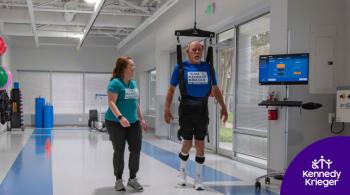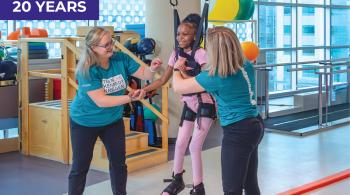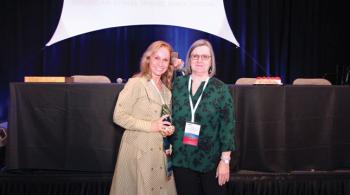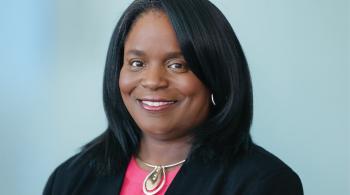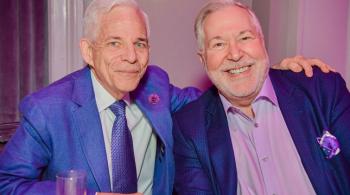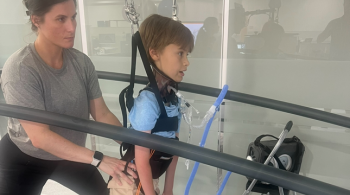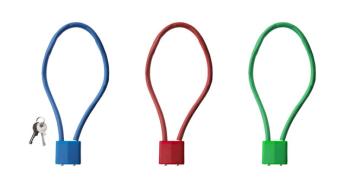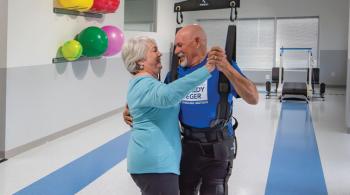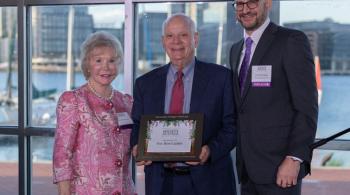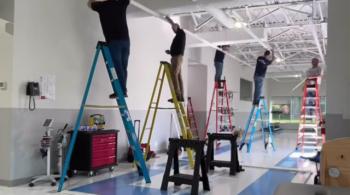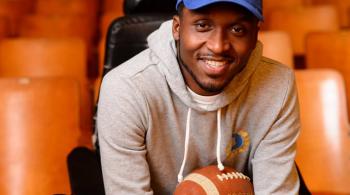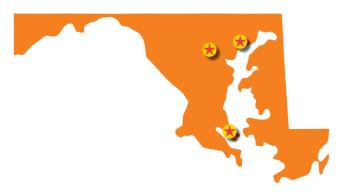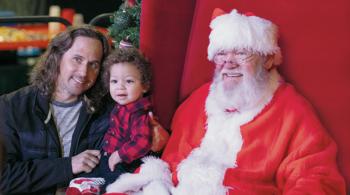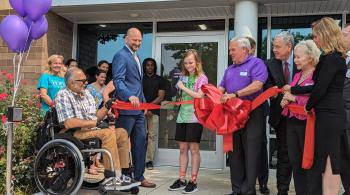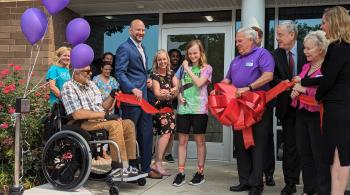 Overcoming a difficult challenge led Van Brooks to discover a new path to a meaningful future. Now, he’s inspiring West Baltimore kids to do the same.
Overcoming a difficult challenge led Van Brooks to discover a new path to a meaningful future. Now, he’s inspiring West Baltimore kids to do the same.
At 16, Van Brooks had a lot going for him. He was a talented student and three-sport athlete at his parochial high school in Baltimore, and he had his sights set on going to college, maybe even playing professional football. That set him somewhat apart from many of his peers in his West Baltimore neighborhood, where many kids struggle to finish high school, let alone go to college.
But a spinal cord injury Brooks sustained during a routine tackle at a fall football game that year (2004) ended all of that. Paralyzed from the neck down, Brooks couldn’t talk—let alone sit up, eat, write or walk—for months. Doctors told him he would remain that way for the rest of his life.
Brooks didn’t want that—not if he could help it. His spinal cord was compressed, not severed, which meant that, with a lot of work, he might improve. In 2005, he began rehabilitation at Kennedy Krieger Institute’s International Center for Spinal Cord Injury.
For months, he spent all day working on physical, occupational and other therapy exercises, slowly gaining back functioning, a little bit at a time. He also returned to his studies, graduating from high school with his class, and earning a bachelor’s degree in mass communications from Towson University. And by September 2012, he was able to take a few steps—a major accomplishment for a man told by doctors he’d never walk again.
But that was just the beginning. Those few steps—eight years in the making—prompted Brooks to get back to thinking about the future—only this time, it wasn’t just his own future he was thinking about.
“Taking those steps woke me up,” Brooks says. He realized he had not only a future—perhaps not the one he’d imagined for himself at 16, yet a future all the same—but also the impetus to motivate others to envision and work toward a future for themselves, too.
If Brooks could get his once-paralyzed legs to move again, he figured, West Baltimore kids could study hard and get ahead—by putting into their studies the same kind of time and energy Brooks puts into his rehabilitation. Brooks could be the living inspiration for kids who often lack the role models and resources needed to make it out of poverty.
“No matter what you’re going through,” Brooks says, “if you put in the work and dedication to get through it, what you’re really doing is putting that work and dedication right back into your life.”
In 2012, Brooks founded Safe Alternative Foundation for Education, Inc. (S.A.F.E.), a nonprofit organization that works with kids to help them succeed in life. S.A.F.E. stresses education—through vocational training—and exposure to positive experiences. In 2015, Brooks founded the S.A.F.E. Center, located right in West Baltimore, offering after-school and summer learning programs, free-of-charge, to kids and teens in the neighborhood.
On weekdays, kids start showing up at the center around 3 p.m., and they typically stay through early evening. Brooks and the two employees he’s hired to work for the foundation help the kids with their homework and lead them in interesting hands-on activities—like soapbox derbies, team sports and learning CPR—many of them integrating academic subjects with life in the real world. They also provide tutoring and mentoring services, and high school application help and advice.
“The oldest kid we’re working with is now a sophomore, so we’ll be helping him start on his college applications soon,” says Brooks, who always encourages the kids to have two plans for their future—one that’s ideal, and one that’s an alternative, in case life throws them any curve balls.
The kids often refer to Brooks—technically, S.A.F.E.’s executive director—as “Coach” or “Coach Dad.” It fits—he’s coaching them to excel in life.
Brooks continues his therapy and training at Kennedy Krieger, visiting the spinal cord injury center’s gym several mornings a week. Although he can walk only a few steps at a time, his torso and arms are almost fully functional, and he gets around in a motorized wheelchair. The Institute has become something of a second home to him over the past 13 years, he says.
“I spend a lot of time at Kennedy Krieger, because in order for me to do my work with S.A.F.E., I need to be as healthy as I can be,” explains Brooks, who took on the additional task of directing the Maryland Governor’s Office on Service and Volunteerism this past fall. “As long as I’m healthy, I can do my work to the best of my abilities.”
“And the same thing goes for the kids I work with, and their families and their communities,” he asserts. “I want them to be the best they can be.”
Photo credit: Colby Ware

